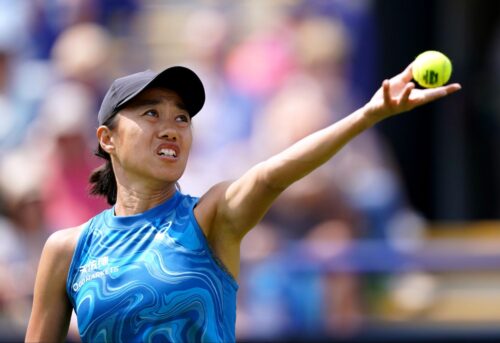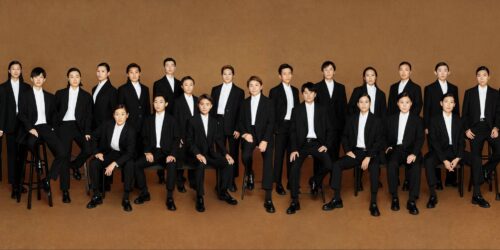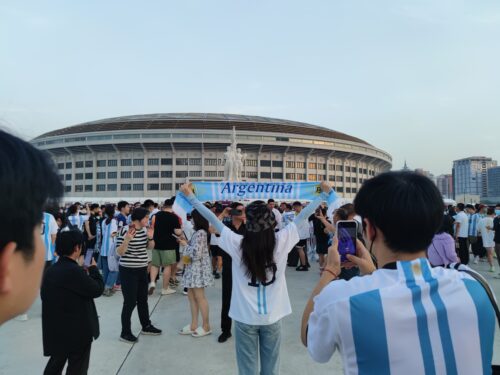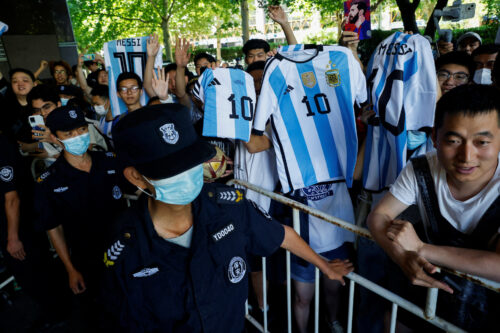Comeback kid: Wang Yafan into world’s top 50 after winning first WTA title in style

The China Sports Column is a The China Project weekly feature in which China Sports Insider Mark Dreyer looks at the week that was in the China sports world.
Women typically take the lead when it comes to the Chinese sports landscape, so it’s somewhat appropriate to mark International Women’s Day with yet another success for the ladies.
Tennis player Wang Yafan 王雅繁 this week moved into the world’s top 50 for the first time in her career after winning her first WTA title in Acapulco, Mexico — and she did it the hard way.
The unseeded 24-year-old from Nanjing was a set down in both the semifinals and the final to third-seeded Croatian Donna Vekic and fifth-seeded American Sofia Kenin, respectively, but rallied to a three-set victory on each occasion.
In fact, Wang was a set and a break down twice in the second set of the final before winning four straight games to win the set 6-3, and then edging the decider 7-5.
Mexico and China might have had their difficulties in the past, but things have been on solid footing more recently, and a Chinese win in both the singles and doubles tournament in Acapulco can’t have done any harm: Zheng Saisai 郑赛赛 teamed with former singles world #1 Victoria Azarenko to beat home favorite Guiliana Olmos and American Desirae Krawczyk 6-1, 6-2 in the double final.
China is now in an enviable position with four players — Wang Qiang 王蔷 (#18), Zheng Saisai (#39), Zhang Shuai 张帅 (#40) and Wang Yafan (#49) — inside the top 50, second most after the U.S.
The women’s game, like the men’s, is often dominated by just a handful of players, with only six women winning three or more WTA titles in 2018.
Nothing is ever a given in sport, but momentum has been building around Chinese tennis, so watch for at least one of that quartet to make a move into the sport’s top tier in 2019.

Chinese soccer got another kick in the balls this week — this time from former Chelsea player Jon Obi Mikel.
Mikel signed for English club Middlesbrough in January after two seasons playing with CSL side Tianjin TEDA, and he’s been reflecting on that experience this week.
It was not pretty.
Words and phrases like “mistake,” “premature,” “huge culture shock,” and “struggle” are dotted throughout this interview with The Telegraph, with some choice quotes leaping off the page:
“The pitches were poor, stadiums are poor, and the medical facilities were not what I was used to. I’m not saying it’s all the Chinese clubs — some of them are quite professional — but the one I was at, it wasn’t as professional as it should have been. It became tough for me almost straight away.”
In truth, it’s hard to deny any of those claims. The pitches, stadiums, and facilities are all lagging far behind the hype when it comes to Chinese football, but Mikel’s words are most damaging when it speaks directly to his fellow players:
“My advice to anyone thinking about going is have a long think about it. I certainly wouldn’t say to anyone under the age of 30 to go there. They will regret it if they do. You should wait until you are approaching the end of your career. The money makes the move tempting, we’re only human, but do not be tempted by the size of the cheque if you are in the prime of your career. It’s not worth it.”
When Chinese football first started throwing money at European clubs, many in the West assumed that the CSL was simply another graveyard for semi-retired professionals picking up one last paycheck — especially with the high-profile signings of Didier Drogba and Nicolas Anelka in the past. Major League Soccer (MLS) in the U.S. had that reputation, and the CSL was often unfairly tarnished with the same brush.
In fact, in recent years there has been something of an unwritten rule — with a few notable exceptions — that foreign players still had to be in their 20s when coming to China.
Oscar (then 25), Paulinho (26), Cedric Bakambu (26), Alex Witzel (27), and Yannick Carrasco (24) are among the examples who moved to CSL clubs while still very much in their prime.
Mikel himself was 29 when he first signed with Tianjin, and while he may not have been the most famous of the foreign signings, having won just about everything in European football while with Chelsea, his comments will have weight within the game.
Chinese clubs may still want to sign players in their prime, but this — coupled with recent moves to price players out of coming to China through an unnecessary tax — will make it more difficult to sign the most attractive talents, meaning the league will suffer as a result.
Perhaps most damning of all is the fact that while the CSL would like to think it compares favorably with MLS among the second-tier leagues around the world, Mikel makes quite clear that is not the case:
“I think they are going to struggle to get where they want to be. I think the league in America is on the rise, but for me China is a long way behind them. You can only advance so much by throwing money at something.”
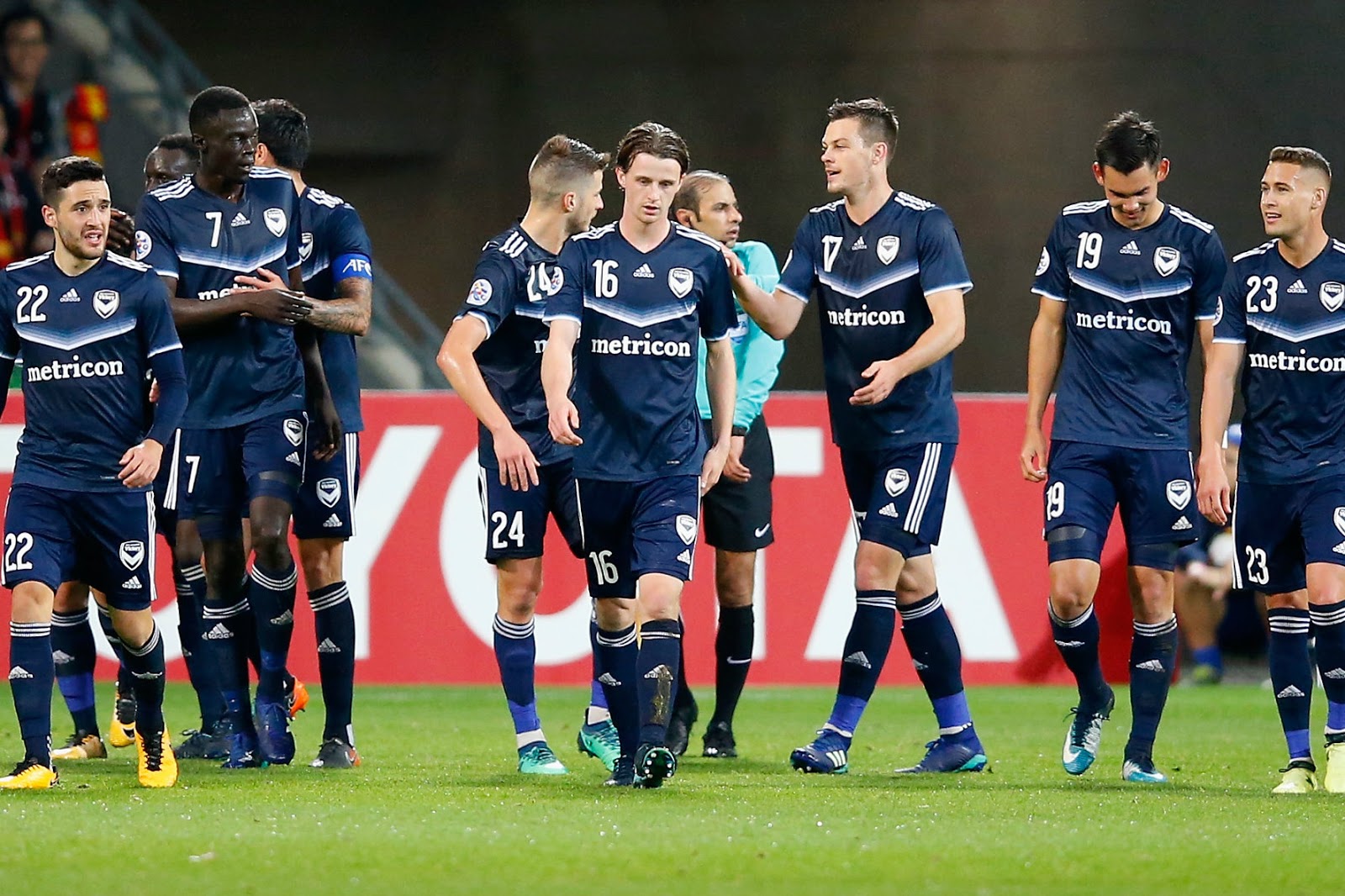
Finally this week, Australian soccer side Melbourne Victory has been left red-faced after effectively being hoodwinked by a Hong Kong-based betting company, who convinced them that their firm’s operations consisted of something else entirely.
Gambling sponsorships are banned in the Asian Champions League (ACL), where Melbourne was playing this week against Korean side Daegu.
Since clubs in the region often only sell sponsorships for domestic games only, they are left with front-of-shirt sponsorships to sell at the last minute for ACL games that will be broadcast to a pan-Asian audience, allowing a wider range of interested parties with whom to negotiate.
But when Melbourne partnered with Kaishi Entertainment, some observers pointed out that the firm’s logo bore more than a passing resemblance to gambling firm Kashbet.
The club doubled down with now-deleted tweets and a statement arguing that Kaishi was in fact a media agency and that the sponsorship had been approved by the ACL.
*cough* pic.twitter.com/dNZ0N6RVhu
— Paul Williams (@PaulWilliams_85) March 7, 2019
But Kaishi and Kashbet appear to be little more than two parts of the same whole, and it didn’t take long for them to buckle after the link was established.
In the end, they were forced to remove the logo from their shirts and played the game in Korea without a sponsor at all.
The club may have ditched the Chinese betting, but it’s still betting on the Chinese market: It recently signed with Chinese TV brand TCL for this season’s remaining ACL games. No doubt the club is wishing they’d done so one week earlier.
The China Sports Column runs every Friday on The China Project. Follow Mark Dreyer @DreyerChina.

